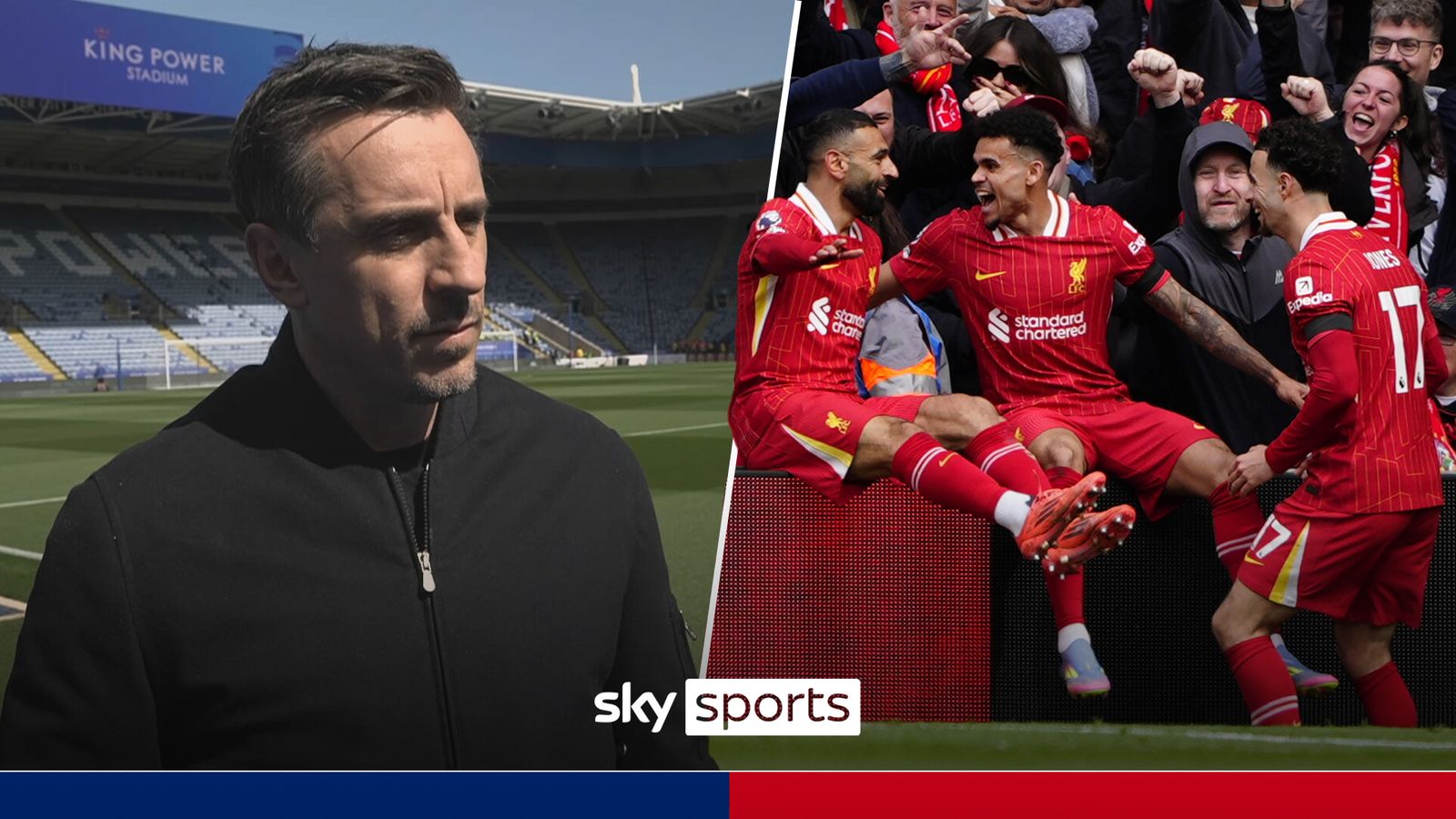Ask a question or make a comment
Got a question?
Security and defence analyst Michael Clarke returns for his weekly Q&A on the Ukraine war tomorrow afternoon - covering anything from the battlefield to the negotiating table.
He'll tackle as many of your questions as he can - submit yours in the box above to join in.
Russia: US has 'common understanding' with Moscow on need for peace in Ukraine
We've just heard from the Kremlin in its regular morning update - here's what spokesman Dmitry Peskov had to say:
- There is a "common understanding" between the US and Russia on the need for a "peaceful settlement" in Ukraine;
- But there are still "many, many different aspects" that need to be worked out;
- Donald Trump proposed the revival of the Black Sea grain deal, which Vladimir Putin gave his consent too (see 9.45am post);
- Russia is monitoring the situation of Ukrainian strikes on energy infrastructure following reports of an attempted attack on an oil pumping station in the Krasnodar region;
- Confirming reports from the weekend, Peskov said Putin did indeed send Trump a portrait of himself as a "personal gift".
Explained: What is the Black Sea grain deal - and why does Russia want to restore it?
Talks between Russia and the US in Riyadh today are centred on the Black Sea, particularly on a deal to secure shipping there that collapsed more than 18 months ago.
Moscow is said to be keen to revive a UN-backed deal that allows Ukraine to export grain from its ports without being attacked, known as the Black Sea grain initiative.
The deal was negotiated in July 2022 between Turkey, the UN and Russia as a way of ensuring that Ukraine, one of the breadbaskets of the world, could keep exporting grain via its southern ports.
The deal also allowed for greater Russian agricultural exports, but Moscow pulled out of the initiative in July 2023 after accusing the West of reneging on this part of the agreement.
This meant Russia stopped granting safe passage to cargo ships going to and from Ukraine, and the country's grain exports subsequently slumped.
If the deal is brought back, Russia would once again be able to export farm produce and fertiliser through the Black Sea, getting relief from sanctions imposed by Western countries.
Mapped: The situation on the battlefield
As high-level negotiations take place in Saudi Arabia in an attempt to end the war, fighting rages on the frontlines.
These maps show the latest territorial situation, indicating how much ground is held by Russian and Ukrainian forces.
The first map shows a wide view of the conflict, and from left to right you can see closer views of the fronts in Donetsk, Kharkiv, Luhansk and of the Russian region of Kursk, where Putin's forces have advanced and pushed Ukraine's positions back in recent weeks.
In pictures: Russia strikes Donetsk, Kharkiv and Kyiv
As we've been reporting, Putin's forces launched nearly 100 drone attacks against Ukraine overnight - after a deadly weekend of strikes.
The photos below, supplied by Ukraine's emergency services, show firefighters tackling blazes in several regions.
Ukraine's air force says it shot down 57 out of the 99 Russian drones fired overnight.
Explained: What's the aim of today's talks?
Russian and US officials are holding peace talks in Saudi Arabia today - after a Ukrainian delegation met US negotiators there yesterday for what Kyiv described as "productive and focused" discussions.
Steve Witkoff, Donald Trump's special envoy, has said talks today were about making "some real progress".
Discussions today centre on a maritime ceasefire in the Black Sea - and potentially on how a wider 30-day full ceasefire might be implemented and monitored.
The former would allow the free flow of shipping, but some Ukrainian voices have said that only Russia would benefit from a ceasefire there.
Those complaints are similar to what we heard on a potential energy ceasefire, with some saying it would only help Russia given Kyiv's success at striking oil fields.
Fighting has continued in the Black Sea area since a UN-brokered grain deal between Moscow and Kyiv collapsed after a year of war.
Russian vessels have been damaged and sunk by Ukrainian missile and drone attacks - with Kyiv improvising by engineering different kinds of weapons to strike Moscow's navy.
In the early days of the war, Ukraine sank Russia's flagship, the Moskva, in the Black Sea.
What have Washington and Moscow said?
Noises out of the US have been positive: "I think you're going to see in Saudi Arabia on Monday some real progress, particularly as it affects a Black Sea ceasefire on ships between both countries. And from that you'll naturally gravitate to a full-on shooting ceasefire," Witkoff told Fox News.
But Moscow has been keen to make clear nothing had been agreed ahead of time.
"We are only at the beginning of this path," Kremlin spokesman Dmitry Peskov told Russian state TV.
He also said there were many outstanding questions over how a potential ceasefire might be implemented.
Who's there?
Lower-level officials are representing the US at talks today - neither Witkoff, secretary of state Marco Rubio nor national security adviser Mike Waltz will speak for Washington.
The US is instead being represented by Andrew Peek, senior director at the White House national security council, and Michael Anton, a senior State Department official.
Russia is represented by Grigory Karasin, chair of Moscow's foreign affairs committee, and Sergei Beseda, an adviser to the director of the Russian security services.
No major breakthrough expected today
Don't expect any major breakthrough to be agreed today in Saudi Arabia, Moscow correspondent Ivor Bennett says.
"Last night the US delegation sat down with the Ukrainians in Riyadh, the Saudi capital, and today they're meeting with the Russians and the focus of today's talks is on is to make progress on a maritime cease fire in the Black Sea," he explains.
"I expect there won't be any kind of breakthrough on talks today."
He also discussed inflammatory comments from Steve Witkoff, which he said made for "far from the ideal backdrop" for the negotiations - read more on that in our 7.54 post.
Ukraine destroys military helicopters in Russian border region
Ukraine's special operation forces says it has destroyed four military helicopters in Russia's Belgorod region.
Posting on Telegram, the SSO says it used missiles to destroy two Ka-52 strike helicopters and two Mi-8 transport helicopters.
Trump should fire Witkoff for 'false country' comments, Ukraine says
Donald Trump's envoy leading ceasefire negotiations should be removed for his comments over the weekend, the chair of Ukraine's foreign affairs committee has said.
After Steve Witkoff said the root cause of the war was the Kremlin's view that Ukraine was a "false country" (see more in our previous post), Oleskandr Merezkho told us this morning that the US diplomat was parroting Putin's propaganda.
"Is he an envoy of President Trump or... Putin's envoy?" he asked.
He also said Witkoff, who is spearheading negotiations, "should be removed as a representative of Trump because he discredits the United States and the US foreign policy".
At the very least, he says, "President Trump should take very serious steps - he should disavow these statements because they're dangerous and dangerous".
He added: "In the entourage of Mr Trump, there are different people - those who understand what's going on and those who don't understand," implying that Witkoff falls into the latter.
You can watch Witkoff's inflammatory comments and a clip from Merezkho's interview here...
Trump's envoy on 'root cause' of Ukraine war
We've been reporting this morning on comments made by Trump envoy Steve Witkoff over the weekend about his "friendship" with Vladimir Putin and scepticism over the "coalition of the willing" (see 6.58am post).
In his same interview with right-wing journalist Tucker Carlson, Witkoff also gave his thoughts on the "root cause" of the war.
"There's a sensibility in Russia that Ukraine is a false country - that they're just patched together in this sort of mosaic, these regions," he said.
"That's the root cause, in my opinion, of this war, that Russia regards those five regions as rightfully theirs since World War Two. And that's something that nobody wants to talk about.
"Will the world acknowledge that those are Russian territories? Can Zelenskyy survive politically if he acknowledges this? This is the central issue in the conflict."
For context: Vladimir Putin has made the cession of four regions of eastern Ukrainian occupied by Russian forces a red line in peace talks.
Russian propaganda often repeats the claim that the populations of those regions would prefer to be controlled by Russia, citing sham referendums rejected by the international community as null and void.
Moscow's forces only partly occupy Donetsk, Luhansk, Kherson and Zaporizhzhia. Russia illegally annexed Crimea in 2014.
Ukrainian rail service hit by 'multi-level' cyber attack
Ukraine's state-owned railway company says its online systems have been struck by a large-scale cyber attack.
Ukrzaliznytsia says it first reported disruption to its systems yesterday, calling it an IT failure.
"The railway continues to move despite physical attacks on the infrastructure, not stopping it even with the most vile cyber attacks!" it says in a post on Telegram.
It says the attack was "very systemic, non-trivial, and multi-level", but that restoration of online systems is ongoing, and that train traffic has been stable and running without delays.
Last week, Ukrzaliznytsia reported another Russian drone attack that struck electricity systems powering railways in Ukraine's central Dnipropetrovsk region.
Watch: Five-year-old among three killed in drone strike on Kyiv region
As we've been reporting, Kyiv has been targeted by Russian drone strikes for the past three nights.
Among the dead from overnight attacks on Saturday was a five-year-old, according to Ukrainian officials.
.png)
.jpg) 3 weeks ago
33
3 weeks ago
33









 English (US) ·
English (US) ·